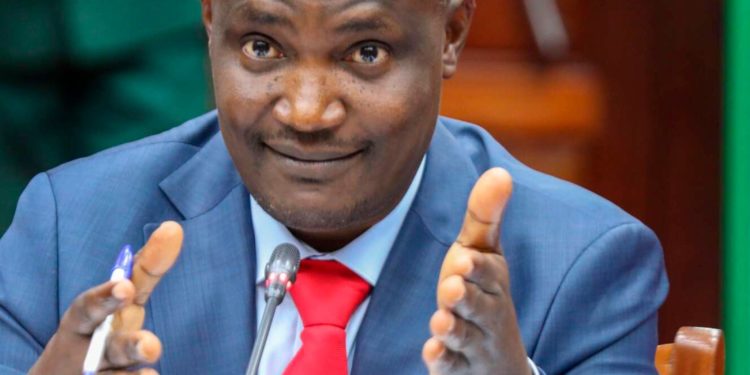Newly appointed Treasury Cabinet Secretary John Mbadi is set to make significant changes at the Central Bank of Kenya (CBK) as he prepares to appoint four new members to the Monetary Policy Committee (MPC). The MPC is a key organ of the CBK responsible for formulating monetary policy, with a primary focus on maintaining price stability in the economy.
The terms of the current four external members of the MPC—Dr. Benson Akong’o Ateng’, Dr. Margaret Chemengich, Prof. Jane Kabubo-Mariara, and Humphrey Muga—are set to expire on August 24, 2024. These members, who have served since 2018, will be stepping down after completing the maximum two three-year terms, necessitating fresh appointments.
“The new appointments will bring fresh perspectives to the Monetary Policy Committee as we continue to navigate the complex economic challenges facing our nation,” Mbadi said in a statement.
MPC members are selected based on their expertise in finance, banking, fiscal, and monetary policy, with most appointees drawn from the finance industry. The upcoming changes to the MPC follow the recent overhaul at the CBK, which included the appointments of Dr. Kamau Thugge as the CBK Governor and Dr. Susan Koech as Deputy Governor. Additionally, President William Ruto appointed Andrew Mukite Musangi as CBK board chairman for a four-year term beginning in September 2023.
With these appointments, the Kenya Kwanza administration has effectively placed its preferred candidates at the helm of the apex bank, replacing executives who served under former President Uhuru Kenyatta.
Looking ahead, the administration will have another opportunity to make key appointments at the CBK, as four seats on the bank’s board are set to fall vacant in December. The tenure of Nelius Kariuki, Ravi Ruparel, Samson Cherutich, and Rachel Nzombo, all serving their second terms as board members, will end on December 4, 2024.
The CBK board, tasked with overseeing the bank’s functions and formulating policies outside of monetary policy, currently operates with only half of the required non-executive directors. Auditor-General Nancy Gathungu has raised concerns over this deficiency, which has persisted despite the absence of amendments to the CBK Act.
“While the lack of a full board has not impacted quorum, it remains a governance issue that needs addressing,” Gathungu noted in a recent audit report.












